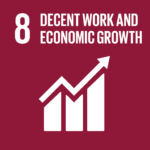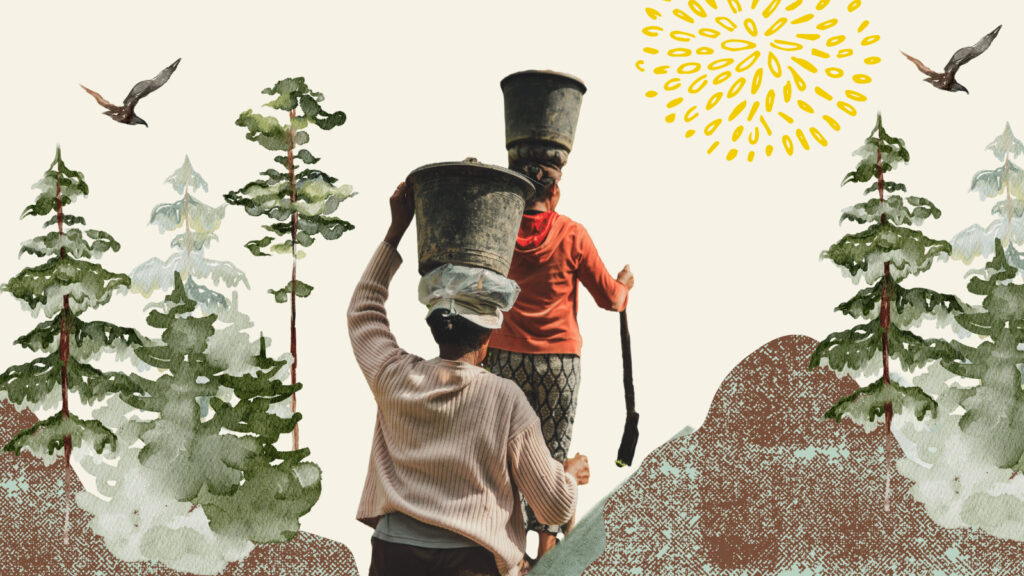Healing the cultural wounds and leaving no one behind.
August 9 is the International Day of Indigenous People. The day aims at protecting the rights of the world’s tribal population and recognises the achievements and contributions that indigenous people. According to a 2019 ILO study, indigenous people represent 6.2 per cent of the world’s population, amounting to over 476.6 million individuals spread across the globe. They speak 7k+ languages & represent 5,000 different cultures.
Indigenous community are the holders of a vast diversity of unique cultures, traditions, languages, and knowledge systems. Indigenous community have a special relationship with their lands and ecosystems; holding divers concepts development based on their worldview and priorities.
RELEVANT SUSTAINABLE GOALS



CLOSING THE INEQUALITIES GAP
Before colonization, Indigenous communities around the world have lived in harmony with the land, animals and plants on their ancestral territory for thousands of years. They make up less than 5% of the population but manage more than 1/4 of the world’s land surface. Many of the world’s forests remain intact because indigenous peoples have protected and maintained them for centuries.
Indigenous people were recognized in the 2007 UN Declaration on the Rights of Indigenous Peoples. But Indigenous peoples continue to suffer from land and water insecurity, social dislocation and violence while defending their traditional lands. They also make up 15% of the world’s poorest people. They’re also one of the most vulnerable to the effects of climate change because they live in remote areas that already experiencing early impacts of climate change. Some are located along the coast with rising sea levels.
Indigenous people were recognized in the 2007 UN Declaration on the Rights of Indigenous Peoples. But Indigenous peoples continue to suffer from land and water insecurity, social dislocation and violence while defending their traditional lands. They also make up 15% of the world’s poorest people. They’re also one of the most vulnerable to the effects of climate change because they live in remote areas that already experiencing early impacts of climate change. Some are located along the coast with rising sea levels.
The world of indigenous communities have been shaped by persistent inequalities and centuries-old experience of marginalisation and colonialisation. On the top of that, the COVID-19 pandemic has exposed and disproportionately affecting communities all over the world that already suffering from climate change, poverty, discrimination, health vulnerabilities, institutional instability and financial insecurity. The International day of Indigenous People theme for this year is “Leaving no one behind: Indigenous peoples and the call for a new social contract.” But, what does it mean?
This year’s theme of ‘Leaving no one behind’ requires us to work together for equal enjoyment of rights by all. Around the world, there is a growing movement for transformation of our shared history to heal cultural wounds and build a better future for us all. Here is a great way to get started.
SOLIDARITY NOT CHARITY
Poverty, discrimination and marginalised communities are the casualties of the market forces of capitalism. When one group exploits the natural resources or labor of another group to create wealth for themselves there are often unintended consequences. This is not about blame or pointing the finger, it is about recognizing ways that economic systems impact all of us in different ways. Some communities have enormous cultural wisdom but lack monetary wealth while others have massive amounts of material abundance and lack a sense of belonging or community. Through solidarity, and collaborative efforts there is a more equitable distribution of cultural wealth and monetary abundance.
Indigenous people contribute the least to climate change and they’ve been at the frontlines of the impacts. Their traditional knowledge of ecosystems should be valued. We need to honour and listen to Indigenous voices and recognise their role as stewards of ecosystems and their rights- their consent to development in their traditional territories.
FEEDING THE ROOT FOR CLIMATE ACTION
Indigenous people are the world’s best earth guardians and frontlines. These communities that have relied on the land for generations, building an intimate knowledge of the natural cycles of plants, animals, and weather. Unlike the traditional Western worldview that humanity can and should seek dominion over the environment, indigenous populations tend to view humanity as part of an interconnected whole.
Indigenous communities also manage 33% of forests that hold 80% of the earth‘s biodiversity. With their deep ties to the land and reliance on fishing, hunting, and gathering, indigenous tribes are especially vulnerable to the impacts of climate change. Due to their indigenous peoples unique connections to the land; are feeling impacts the earliest and most severely. They are, by far, the most effective stewards of biodiversity. Hence, protecting indigenous culture is crucial for saving the world’s biodiversity
Building a better future and conserving our environment requires never leaving anyone behind. This means respect for the rights of indigenous peoples means ensuring equal and meaningful participation, full inclusion and empowerment.
Over recent years and decades, various societies have sought to address this, including through apologies, truth and reconciliation efforts, legislative reforms, as well as constitutional reforms, while at the international level, these efforts have included the adoption of the United Nations Declaration on the Rights of Indigenous Peoples and advisory bodies such as the Permanent Forum on Indigenous Issues.
Together, we need to embark on the collective journey to ensure that no one is left behind, including indigenous peoples. We need to learn about indigenous brilliance, knowledge and success as much as we need to learn about their suffering, trauma and discrimination. Each of us has a power to demand indigenous peoples’ inclusion, participation and approval in the constitution of a system with social and economic benefits for all. Respect for the rights of indigenous peoples means ensuring equal and meaningful participation, full inclusion and empowerment.


